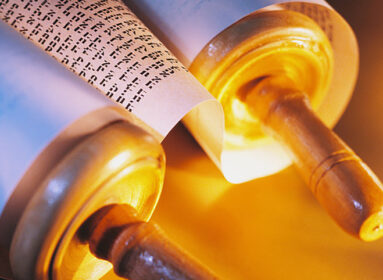By Shlomo Riskin
What is the essence of our faith, the purpose for which the Jewish people have been placed in the world? The answer is to be found within the central prayer of our Rosh Hashana liturgy: the three blessings, uniquely found within the Musaf (additional) prayer of Rosh Hashana, of Malchuyot (kingship), Zichronot (remembrances) and Shofarot. These blessings are each punctuated by the sounds of the shofar and, according to the 14th century theologian Rabbi Yosef Albo as well as the 19th-century Franz Rosenzweig, contain the essence of our faith.
The first of these blessings, Malchuyot, begins with the more familiar Alenu prayer. This prayer teaches that the God whom we now accept as the one Lord of the Universe – the God of love, morality and peace – will eventually be accepted by the entire world. This axiom of our religion, this prophecy of the ultimate endgame, is especially comforting in the face of the dangerous global village in which we live, a global village in which the specter of nuclear proliferation looms.
This blessing affirms that it is the God of compassionate righteousness and moral justice who will eventually emerge supreme over the totalitarian trinity of Nazi fascism, Stalinist Communism and Islamic fundamentalism. Our broken world will eventually be perfected under the Kingship of the God of righteousness; through the teachings of Abraham “all the families of the Earth will be blessed” (Gen. 12:3) with a world of peace.
The second blessing, Zichronot, which is a Hebrew term for history, opens with: “You remember the activities from the beginning of the world, and you are mindful of the deeds [or the potential functions, from the Hebrew tafkid] of every creature from earliest times.”
Here is a ringing declaration of faith in the process of history; the clear sense that historical time is on the side of humanity, and that individuals and nations have a unique role to play in the cumulative march of history toward redemption. Israel alone of the nations of the world enjoys a special relationship with God, a covenant that ensures its eternity and defines its mission as the messenger of ethical monotheism to all of humanity.
This blessing guarantees that there is an overarching purpose to history, which is not a cyclical, repetitive cycle leading nowhere, but rather a linear pathway leading to peace. Redemption will come about in the fullness of historic time as a result of the cumulative merits of all preceding generations.
How will we carry out our covenantal task of imparting our message to the world? This is told to us by the third blessing, Shofarot, which reminds us of the revelation at Sinai, the 613 commandments that God presented to Israel and the seven commandments of morality, centering around “Thou shalt not murder,” which God presented to the world. Maimonides, the great codifier of Jewish law, insists that just as God commanded Moses to bequeath 613 commandments to Israel, “similarly did He command Moses to coerce the nations of the world to accept the seven laws of morality” (Laws of Kings 8:10).
Shofarot tells us that the Seven Laws of Morality, which must be accepted by the nations, are not options, but absolutes, since – especially in our global village – the lives of all humanity hang in the balance of their acceptance.
Hence the Rosh Hashanah Musaf Amida teaches that the nation of Israel must and will teach fundamental morality, or ethical monotheism, to all the nations of the world. Only when this message is accepted, when “this Torah comes forth from Zion and the word of God from Jerusalem,” only then will “nation not lift up sword against nation and humanity not learn war anymore” (Isaiah 2:4) and “everyone will sit under his vineyard and fig tree and no one will have reason to fear” (Micah 4:4).
Each of these blessings is punctuated by the shofar sounding. After God’s kingship we sound the shofar, the means by which the king in the ancient world was crowned. After Zichronot, we sound the shofar as a reminder of the aborted sacrifice of Isaac in favor of the ram whose horns were caught in the thicket. Isaac, the future of the Jewish people, was slated for slaughter, but was set free.
The shofar sound after Zichronot reminds us that the Jews will continue to live despite exile and persecution.
We must live so that we may remain God’s witnesses and “a light unto the nations of the world” (Isaiah 42:6).
Finally, we sound the shofar after Shofarot since the method by which we must reach out to the world is by teaching our Torah – a teaching revealed at Sinai amid the sounds of the shofar.
And it will ultimately be that when the Almighty Himself will sound the shofar that all of the dispersed will return to Israel, the Temple will be rebuilt and the nations will come to learn from us to beat their swords into plowshares and to live together in peace.
Shanah Tova!
Rabbi Shlomo Riskin is chancellor of Ohr Torah Stone and chief rabbi of Efrat, Israel.








 Southern New England Jewish Ledger
Southern New England Jewish Ledger














